- Home
- Barry Eisler
The Lost Coast
The Lost Coast Read online
For Larison, a man off the grid and on the run, the sleepy northern California town of Arcata, gateway to the state’s fabled Lost Coast, seems like a perfect place to disappear for a while. But Arcata isn’t nearly as sleepy as it seems, and when three locals decide Larison would make a perfect target for their twisted sport, Larison exacts a lifetime of vengeance in one explosive evening. Warning: this story is intended for mature audiences, and contains depictions of sexual activity, though perhaps not in the way you’re expecting.
The Lost Coast
Q&A: J.A. Konrath Interviews Barry Eisler
THE DETACHMENT: A John Rain Thriller
RUN, by Blake Crouch
STIRRED: A Thriller, by Blake Crouch and J.A. Konrath
About the Author
Books by Barry Eisler
Contact Barry
The sun was setting on the redwoods and Larison thought it was time to find a place to stop. He’d been driving north from Los Angeles for ten days, sometimes moving continuously during the daylight hours, other times going not very far at all, never more than one night in the same place. He knew the people looking for him had no way to track him, but even if they did, there would inevitably be some lag between the moment they could find and fix him and the deployment of actual forces. The more he kept moving, the more any information his pursuers managed to develop would be useless by the time they could do anything to act on it.
He’d been traveling the coastal highway, but north of Westport it had turned inland, the terrain apparently too rugged for the road to continue along the Pacific, and not long after it had died without fanfare, collapsing into Route 101. He knew from the map on the passenger seat that 101, also called the Redwood Highway, would meander northwest along the King mountain range before reuniting with the Pacific somewhere north of Ferndale. The area in between, cut off from coastal access, was known colloquially as the Lost Coast, a name Larison had found strangely alluring when he’d first heard it years before. He imagined black sand beaches, prehistoric redwood forests, towns as remote and strange as creatures from the Galapagos. Maybe he would spend a few days in the area, passing through disconnected burgs like Petrolia and Honeydew and Shelter Cove, dots on the map next to him. He felt secretly pleased at the notion of a man like himself disappearing in a place that by its name declared it couldn’t be found.
A road sign told him he was thirty miles from Arcata. He’d never been there, but he knew of it. An old mining and then timber nexus on Arcata Bay, now mostly a college town. He’d find a hotel that would take cash and not demand ID. If that didn’t pan out, he’d keep going and find something else. There was always another town.
It was nearly dark as he left the highway, the sliver of a crescent moon hanging low in the sky. He didn’t have a car navigation system or even a cell phone, either of which could be tracked, but he didn’t really need the technology, either. There was usually a logic in the layout of small towns, with independent restaurants and retail establishments in the center, gas stations, supermarkets, and other chains farther out, and the more sprawling single family dwellings on the periphery. Some were easier to navigate than others, but it didn’t matter one way or the other. He was rarely in a hurry.
He found his way by the usual signs to the center of Arcata, which, as it happened, was impossible to miss: a large square plaza surrounded by bars, restaurants, and small shops. At one corner was a three-story brick building he judged to be about a hundred years old. A faded sign jutting from halfway up its side proclaimed that this was the Hotel Arcata.
He might have driven back to the periphery and found a more anonymous chain establishment, but there was something about the hotel that he liked, something that struck him as simultaneously stalwart and seedy. Certainly it didn’t look like the kind of place where anyone would ask a lot of questions.
He drove slowly around the plaza, logging his surroundings. Four bars alongside the hotel, the buildings mostly one or at most three stories, the clapboard facades against surrounding hills all straight out of the gold rush. Clusters of hobos, some standing, some sprawled on benches, looking in their languorous ease at least semi-permanent. College kids, from the signs Larison had seen probably from Humboldt State University, aping the hobos’ style, tooling around on skateboards and mountain bikes, probably stoned from good, locally-grown Humboldt County weed. He thought about scoring some himself and momentarily longed for a relaxing, solitary high, but knew he couldn’t. He needed to stay sharp. Just in case.
No sense in allowing anyone to connect him to the vehicle, so he found an unregulated stretch of street a half mile from the hotel and parked there. He got out and started walking away from the hotel. No one was watching him, but if they were, they’d describe him heading in the wrong direction. In a few blocks, he’d turn and start to move obliquely toward his intended destination. He didn’t mind the walk. It had been a long drive and the early evening was pleasantly cool. He watched his breath fogging in the moist air and enjoyed the scent of the nearby forest. Outside the town center, the streets were exceptionally quiet, even lonely, the evening mist swirling slowly under intermittent lamplights. Other than the soft crunch of his boots on the sidewalk there was no sound at all.
The entrance to the hotel was a step back in time: an intricately tiled floor; a great, winding staircase; lights the hue of candles strung in a line along the ceiling. The clerk, pony-tailed, bearded, and pierced through his left nostril, offered no objections to Larison’s story about the loss of a wallet and accompanying ID. Maybe the situation struck the guy as strange, but so what? If anyone asked, he would describe a solid man of about forty, dark hair, dark skin, a stubble of beard, and Larison doubted whether after the passage of a few hours or a day the guy would be able to offer even that much. The guy accepted cash for a single night in a second-floor room as Larison requested, gave Larison an old-fashioned key on a chain, and bid him a good evening.
Larison took the stairway to the second floor and let himself into the room without turning on the light. He closed the door behind him, double locked it, and crossed the short distance to the large windows. He noted that, unlike what was commonly found in more modern hotel fare, these windows were designed to be raised completely, and he opened each to confirm. He looked down and saw a closed Dumpster in the alley directly below him. In a pinch, he’d be able to hang from the window and jump, which was why he’d wanted this floor. Low enough to get down from; too high to easily get into. Of course, the people he was up against would know to have the alley covered while they breached the front door, but it could never hurt to have more options. At a minimum, the presence of an escape hatch would compel them to divide their forces, improving his odds of blitzing through the segment attacking at the door or through the segment covering the alley.
But he reminded himself that no one had followed him, no one knew he was here. The precautions were smart, but in the end, they wouldn’t be necessary. And Arcata itself was a sleepy little town. He wasn’t going to have any trouble here.
He closed the windows, then the blinds, and then turned on the lights. The room was Spartan: a single bed under a faded spread; a tiny nightstand hosting a plastic alarm clock; a rickety-looking wooden table and matching chair. It was fine. It was all he needed.
He went to the bathroom and flicked on the light. Just a pygmy-sized toilet, sink, and a claw foot tub with a curtain wrapped around it so it could double as a shower. He removed from the cross-draw shoulder holster the Glock C18C machine pistol he always kept at hand and placed it on the toilet tank within easy reach. Then he took a toothbrush and travel-sized toothpaste from his pocket and brushed his teeth. Everything else he had with him, and it wasn’t much—just a second pair of jeans, a few clean shirts, and
a half dozen pairs of socks and underwear—was in the trunk of the car. Enough to keep going for at least a week before it was time to look for a coin-operated laundry. If he ever had to bug out, he didn’t want to have to come back to a hotel room, or leave anything behind if he couldn’t.
When he was done with his teeth, he undressed and took a long, hot shower. Then he got dressed again, holstered the Glock under his dark wool jacket, checked the Emerson Commander BTS folding knife in his front jeans pocket, hung the Do Not Disturb sign from the doorknob, and went down to the lobby. He’d noticed a sushi restaurant called Tomo there on the way in, and sushi sounded as good as anything else for dinner. He sat at the bar and ordered miso soup, edamame, an unagi handroll, and toro sashimi. The décor was utterly ersatz—Larison had been to Japan—but the food was good enough.
He paid cash when he was done and returned to the lobby, planning to take the stairs back to his room. The less he went out, the less likely it was that he would be seen by anyone who might recognize him. A pretty remote chance, of course, but when you’ve managed to fake your own death, there wasn’t much available explanation in the event of a unlucky encounter. The only real possibility—you must be confusing me with someone else—would almost certainly be insufficient to avoid the one person mentioning it to another, and then another, until the information reached the ears of someone in the organization who would act on it.
Still, he paused in the antique lobby, the thought of returning to the dreary little room suddenly unappealing. Who could possibly recognize, or even notice him, in the sleepy town of Arcata, perched on the edge of the Lost Coast like a ship becalmed in the Bermuda Triangle? He decided the hell with it, a walk around the plaza if nothing else. After all, when would he ever be back here? He chuckled at that, because with the kind of animosity he had riled up, the likelihood was that he would never be back anywhere, let alone Arcata. He might as well enjoy a quiet night out. It would be boring, but less boring than lying awake on the bed in that small room, eyes open in the dark, waiting for sleep, afraid of the dreams.
He went out. The smell of the forest was gone here, obliterated by the dank lees of cigarette smoke and spilled beer and wet tobacco. He crossed the street to the plaza, made a right, and walked slowly along. Many of the hobos were laughing and talking boisterously as he approached, but as he neared they grew quiet and averted their eyes, saying nothing, not even a request for spare change, as though he were a jungle cat they hoped by their sudden stillness might overlook them and choose some other prey.
He walked the perimeter of the plaza, then crossed the street back to the entrance to the hotel. He almost went inside, but paused, again gripped by restlessness, some vestigial need to see something, connect with something, in the world outside another anonymous room in another random town.
He walked slowly down the neon-dim sidewalk, parting the knots of pierced and long-haired college kids, barely noticing the unconscious discomfort that settled into the features of some of them at his approach and evaporated as suddenly in his wake. He was used to the reaction. Even when he wasn’t trying, even when he was trying not to, there was something about him that scared people. Most of them didn’t even understand why. But he did. They sensed the things he had done.
Which was why he mostly steered clear of bars. Ordinarily, the low level predators knew from a single sniff to steer clear of him, but a little liquid courage sometimes made people stupid. Plus, he’d had a bad experience in a bar once, or rather, outside one. He’d been a teenager at the time, tough but stupid, and it had been three on one. They’d fucked him up pretty hard, and he still had a long scar at his hairline where they’d split his scalp, and hearing loss in one ear from a concussion to remind him of that evening. He’d never caught up with them, and even now, all these years later, he sometimes still wished he could.
The first place he passed, Sidelines, was an obvious college meat market, loud and overcrowded. The second, The Alibi, looked as much restaurant as bar, and he’d already eaten. The third, Toby and Jack’s, had an impenetrable brick front that felt like a penitentiary. He wasn’t comfortable entering a room he couldn’t first look into, so he skipped this one, too. The fourth, Everett’s, looked okay. He stood in the doorway, his eyes scanning the room. The bouncer, a beefy, mustached man on a stool just inside the door, watched him but said nothing. After a moment, Larison gave him a collegial nod, having already determined how he would kill the man if it came to that, and moved inside.
It was nothing fancy, a honky-tonk more than a bar. Wood-paneled walls, dim lighting, a pool table, a few tables, a couch. Over the hubbub of laughter and conversation, a jukebox was playing Bob Dylan, Shelter from the Storm. The walls were lined with the stuffed heads of animals: a bison, a bear, a gigantic ten-point buck. He estimated about forty people at the bar and at the tables, and that the place could accommodate maybe twice that if no one was paying overly close attention to fire code limits.
He took an empty bar stool and scanned the room more closely. A guy in riding leathers and a greasy ponytail was running the pool table with strong, confident strokes. Another guy, similarly attired, sat watching the first guy, pool cue in hand, looking unhappy, perhaps at the thought of the money he was about to lose in a bet. He caught Larison’s eye and gave him a hard look. Larison didn’t return the look, exactly, at least not in kind. Instead, he just gazed at the guy impassively, feeling nothing, as though the guy were something inanimate Larison might, if so inclined, disassemble and explore. After a moment, the guy looked back to the pool table, apparently having decided pool was the safer game to play.
One of the bartenders came over, a blond, fifty-something woman with no-nonsense eyes but a warm enough smile. “What can I get you?” she said.
Larison glanced at the taps. “Steelhead.”
She filled a glass, cutting off the flow at just the right instant to prevent the foam from spilling over, and set the glass on the bar in front of him. “Four dollars.”
Larison gave her a five, then left the one she returned to him on the bar. He took a long swallow of the beer and was pleased at how good it was. Something local, he supposed.
The bartender looked at him. “Where are you from?”
Larison was surprised. The bar was crowded, and while she wasn’t alone, it didn’t look like the kind of night where the bartenders could afford to spend time chatting up their customers.
He took another swallow of beer. “San Francisco.”
She gave him a quizzical look. “Pretty long way from San Francisco.”
He shrugged. “Worth the trip.”
“What brings you to Arcata?”
“Just needed to get away for a while.” He glanced at the walls, and to change the subject said, “Are you the hunter?”
She smiled. “No, that would be my daddy. He bought this place in 1959 and I took it over ten years ago. Do you hunt?”
Larison had to resist the urge to smile. He said, “I used to.”
A bearded guy halfway down the bar held up his empty glass and called out, “Linda!” The bartender glanced over and nodded. Larison said, “Well, it was good talking to you, Linda.”
“Yes, it was.” She held out her hand. “And you are…?”
“Dave,” he said, shaking her hand. It was close enough to the truth. He had more answers if she had more questions, his legends so well-practiced he sometimes had trouble telling them from the real thing, but the bearded guy, who had apparently had too much to drink, again called out, “Linda!” and Larison was suddenly alone again.
He turned around on the stool and faced the room again, ignoring the pool players because his point had been made and there was nothing to be gained by fucking with them. He noticed a kid with short brown hair sitting alone at one of the tables, nursing a beer. There was something reserved and gentle about him, which was why Larison hadn’t noticed him initially. He always keyed first on potential problems.
He looked a little closer. The kid had b
eautifully smooth skin, full lips, a healthy bloom of red in his cheeks. More clean-cut than the others of similar age Larison had seen in the area, but still probably just another Humboldt State college student. He noticed Larison looking at him, looked away, then looked back. It was hard to tell from across the room, but Larison could have sworn the kid had blushed.
This wasn’t a good idea. He’d taken enough chances already tonight, coming to the bar, pinging the local tough guys, conversing with the bartender. Picking up some college kid on top of it seemed like really pushing his luck.
Still, the kid was so his type. The hair, the complexion, the soft features. He imagined the kid on his knees in front of him and felt himself becoming aroused.
The kid looked away again, then back. What the hell, it couldn’t hurt to just say hello. Maybe the kid wasn’t even gay. But what felt more likely, somehow, was that he was and just didn’t know it, and the thought of that aroused Larison even more.
He got up and walked over. The kid watched him approach, looking both pleased and nervous. God, Larison hadn’t run into anyone like this in forever. Fuck it. This was worth taking some chances.
He stopped in front of the table and said, “You’re from Humboldt State, am I right?”
The kid smiled uncertainly, and Larison was knocked out. It was such an innocent smile, so unspoiled and unsullied. Larison might have had a smile like that himself, a million years earlier, before all the things he’d encountered that gave him his scary rictus instead.
“Yeah, how’d you know?” the kid said. The voice soft, pleasing.
“I saw the signs when I came in from the highway. I didn’t know there was a state school this far north.”
“Yeah, we’re the furthest north in the system. You thinking about applying?”
Larison was about twenty years older than the kid, and if the tone had been different, the question could have come across as mocking. Instead, it felt… flirtatious. He liked that the kid seemed not to be scared of him. “I’m not sure. You think I’d like it?”

 All the Devils
All the Devils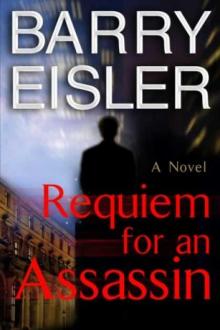 Requiem for an Assassin
Requiem for an Assassin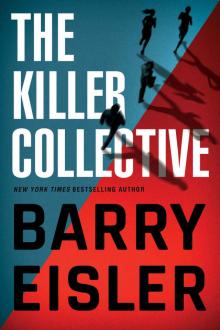 The Killer Collective
The Killer Collective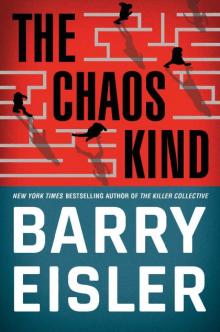 The Chaos Kind
The Chaos Kind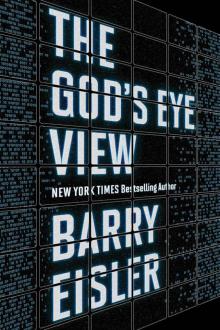 The God's Eye View
The God's Eye View Paris is a Bitch
Paris is a Bitch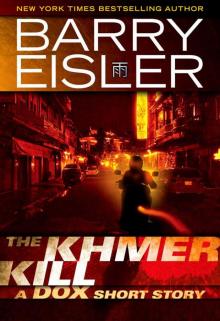 The Khmer Kill: A Dox Short Story (Kindle Single)
The Khmer Kill: A Dox Short Story (Kindle Single)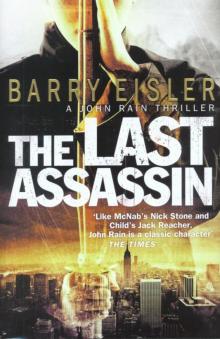 The Last Assassin
The Last Assassin The Detachment
The Detachment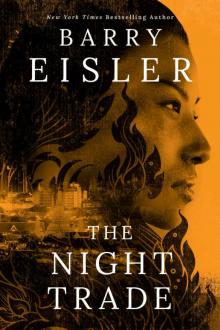 The Night Trade (A Livia Lone Novel Book 2)
The Night Trade (A Livia Lone Novel Book 2)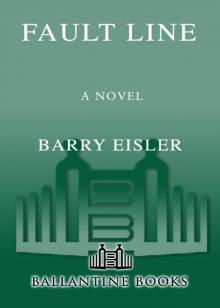 Fault Line
Fault Line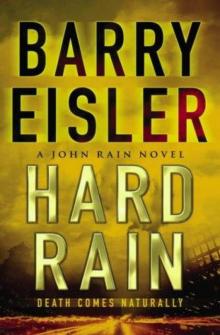 Hard Rain
Hard Rain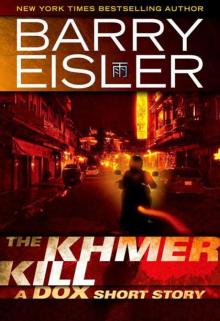 The Khmer Kill_A Dox Short Story
The Khmer Kill_A Dox Short Story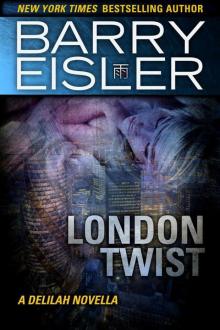 London Twist: A Delilah Novella
London Twist: A Delilah Novella The Lost Coast
The Lost Coast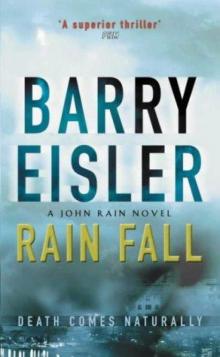 Rain Fall
Rain Fall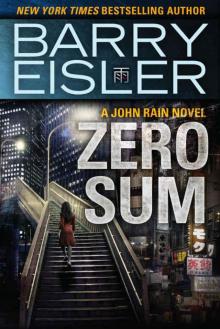 Zero Sum
Zero Sum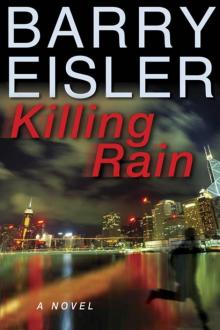 Killing Rain
Killing Rain John Rain 08: Graveyard of Memories
John Rain 08: Graveyard of Memories A Clean Kill in Tokyo (previously published as Rain Fall)
A Clean Kill in Tokyo (previously published as Rain Fall) Inside Out: A novel
Inside Out: A novel John Rain 07 - The Detachment
John Rain 07 - The Detachment Graveyard of Memories
Graveyard of Memories The Lost Coast -- A Larison Short Story
The Lost Coast -- A Larison Short Story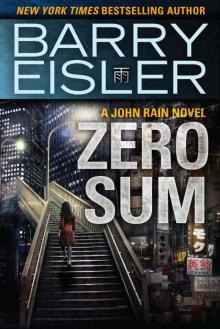 Zero Sum (A John Rain Novel)
Zero Sum (A John Rain Novel)